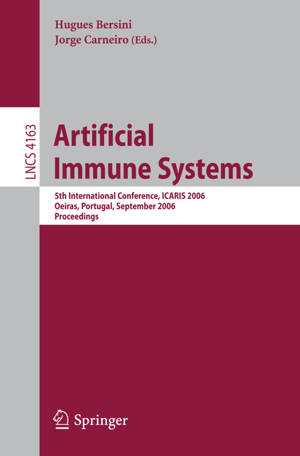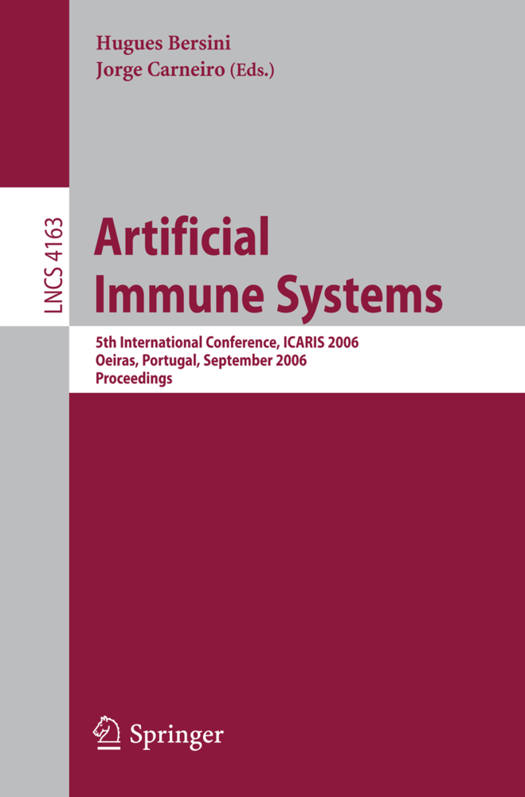
- Afhalen na 1 uur in een winkel met voorraad
- Gratis thuislevering in België vanaf € 30
- Ruim aanbod met 7 miljoen producten
- Afhalen na 1 uur in een winkel met voorraad
- Gratis thuislevering in België vanaf € 30
- Ruim aanbod met 7 miljoen producten
Zoeken
Artificial Immune Systems
5th International Conference, ICARIS 2006, Oeiras, Portugal, September 4-6, 2006, Proceedings
€ 83,95
+ 167 punten
Omschrijving
ICARIS 2006 is the ?fth instance of a series of conferences dedicated to the comprehension and the exploitation of immunological principles through their translation into computational terms. All scienti?c disciplines carrying a name that begins with "arti?cial" (followed by "life," "reality," "intelligence" or "- munesystem") aresimilarlysu?ering froma veryambiguousidentity.Their axis of research tries to stabilize an on-going identity somewhere in the crossroad of engineering (building useful artifacts), natural sciences (biologyor psychology-- improving the comprehension and prediction of natural phenomena) and t- oretical computer sciences (developing and mastering the algorithmic world). Accordingly and depending on which of these perspectives receives more s- port, they attempt at attracting di?erent kinds of scientists and at stimul- ing di?erent kinds of scienti?c attitudes. For many years and in the previous ICARIS conferences, it was clearly the "engineering" perspective that was the most represented and prevailed through the publications. Indeed, since the o- gin of engineering and technology, nature has o?ered a reserve of inexhaustible inspirations which have stimulated the development of useful artifacts for man. Biology has led to the development of new computer tools, such as genetic - gorithms, Boolean and neural networks, robots learning by experience, cellular machines and others that create a new vision of IT for the engineer: parallel, ?exible andautonomous.Inthis type of informatics, complexproblemsareta- led with the aid of simple mechanisms, but in?nitely iterated in time and space.
Specificaties
Betrokkenen
- Uitgeverij:
Inhoud
- Aantal bladzijden:
- 460
- Taal:
- Engels
- Reeks:
- Reeksnummer:
- nr. 4163
Eigenschappen
- Productcode (EAN):
- 9783540377498
- Verschijningsdatum:
- 30/08/2006
- Uitvoering:
- Paperback
- Formaat:
- Trade paperback (VS)
- Afmetingen:
- 154 mm x 237 mm
- Gewicht:
- 703 g

Alleen bij Standaard Boekhandel
+ 167 punten op je klantenkaart van Standaard Boekhandel
Beoordelingen
We publiceren alleen reviews die voldoen aan de voorwaarden voor reviews. Bekijk onze voorwaarden voor reviews.







